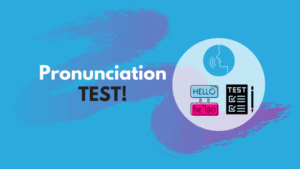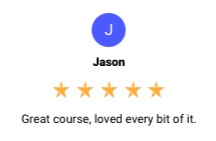Being Polite in English: Useful Expressions
Being polite in English is really important, but not that easy to do.
Don’t worry I’ve got you covered.
In this lesson, you will learn lots of different ways to be polite in social situations, as well as at work and school.
Table of Contents
Being polite in english is a skill
Some people think the British are very polite, saying things like this
Could I possibly dare to ask you be so kind as to pass me the salt?
Now that really is a bit too much, but if you are meeting new foreign friends or travelling abroad, or even if you are going to work or study in an English speaking country, it is important to be polite in English.
I’ve noticed many countries tend to be more direct than in England.
They will often use imperatives much more, for example in a bar,
Give me a beer!
Whereas in England we would probably say,
Can I have a beer?
Being less direct is an important skill, even for native English speakers,
Let’s learn how to be more polite and less direct!
Note: I am from Britain and so all my examples are based on British English, but most are applicable in other English-speaking countries.

Being polite by using questions
One way of being polite, as shown above, is to use questions instead of imperatives.
We often use these words to do that,
- Can
- Could
- Would
For example, imagine you want to use a friend’s pen in the office or classroom. So instead of saying,
Give me your pen
You would say,
Can I have your pen?
Could I have your pen?
Excuse me, can I have your pen?
Excuse me, can I borrow your pen?
Another example, again in the office, if it is cold and you want someone to close the window, instead of saying,
Close the window
We would probably say,
Could you close the window?
Could you possibly close the window?
Would you mind closing the window?
Would you mind closing the window a moment?
Can you do me a favour, and close the window?
A final example for when you are in a restaurant, hotel or bar. When ordering, you would say,
Can I have the club sandwich please?
It may seem strange to ask a question to a waiter, but do note here, and in all the examples above, these are not really questions, they are just a simple way of being more polite in English.
Notice also, we use ‘excuse me’ and ‘please’ a lot to be polite in English.

Using 'just' to be polite
This word, ‘just’ is used a lot to make everything softer. Imagine you want someone to turn down the volume on the TV. If you are angry or annoyed, you could say,
Turn down the TV
But, if you want to be polite, you can say,
Can you just turn the TV down?
Can you just turn the TV down a little?
Next, imagine you are are in a meeting and you want to interrupt someone. Again, you can say,
I want to say something… I think…
But you will often hear native or proficient speakers use ‘just’ to soften the impact.
Can I just say something? I think…
Using 'would' to be more polite
Let us come back to the context of the work or study place. In meetings, you may sometimes not want to agree or disagree with someone directly.
Doing that can be risky, so there are different ways of ‘hedging’ (=making softer and less direct) your answers or sentences.
So, imagine someone in a meeting presenting their idea, and asking your opinion. You may not want to completely agree or commit yourself to agreeing (imagine if later everyone actually disagrees with them). In this case, instead of saying,
I think it’s a good idea
You could say,
I would say that could be a good idea
I would think that could be a good idea
I sort of agree, but… (polite way to disagree)
I kind of agree, but… (polite way to disagree)
Maybe that’s true, but…

Using 'at all' to be polite in english
Do you know how hard it is to get information out of someone else’s secretary? Secretaries can be very secretive and reluctant to share ‘private’ information. I guess that is their job, right?
So, how can you soften your questions, in order to get someone, like a good secretary, to give you that information you want?
Well instead of saying,
I need to speak to Tom, do you have his phone number?
You say,
I need to speak to Tom, do you have his phone number at all?
Or when you want to borrow money off a friend, and you want them to say ‘yes’
Could you lend me 10 dollars at all?
Try it out, and see if you can start getting people to do what you want!
Using past tenses to be polite
For some strange reason, British people use the past tense a lot when asking questions. We do this to make the question seem less threatening, or just to soften the impact.
So, rather than saying,
Do you want to come to my party?
You will hear British people say,
I was wondering if you wanted to come my party
I was going to ask you wanted to come to my party
I wanted to invite you to my party
This is common especially if you don’t know the other person well, or if you think they may be reluctant to do what you are asking.
Conclusion
There are lots of ways of being polite, or less direct in English.
Of course, it depends a lot on the situation and who you are speaking to.
Hopefully the expressions above will help you be more polite and less direct when you need to be.
Finally, please don’t think Brits are always polite, in every situation, of course that is not true.
Well only partly true!
Challenge: How would be say this phrase, more politely?
Give me your phone number!
Let me know in the comments below!
Improve your Speaking Skills with this Free Course
Crack IELTS Speaking Part 1
Learn to Speak with Confidence in Part 1 of Your IELTS Test!
⭐️⭐️⭐️⭐️⭐️
‘It’s such a great course. I’ve learned so many usages for speaking part 1.’
Zu Htet






4 thoughts on “Being Polite in English: Useful Expressions”
I was wondering if you wanted to give me your phone number.
Can I have your phone number please?
Can you just give me your phone number?
Could you please give me your phone number?
Could I possibly dare to ask you be so kind as to give me your phone number?
Could I have your phone number?
Excuse me can I have your phone number please?
Great examples Haily! (number 4 made me smile as it is quite over the top, but funny)
Pingback: Being Polite in English: Useful Expressions – IELTS TEST – how to prepare?